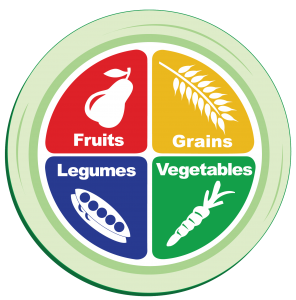
weight-loss
Vegan Diet Better for Weight Loss and Cholesterol Control than Mediterranean Diet
A vegan diet is more effective for weight loss than a Mediterranean diet, according to a groundbreaking new study that compared the diets head to head. The randomized crossover trial, which was published in Journal of the American College of Nutrition, found that a low-fat vegan diet has better outcomes for weight, body composition, insulin sensitivity, and cholesterol levels, compared with a Mediterranean diet.
The study randomly assigned participants—who were overweight and had no history of diabetes—to a vegan diet or a Mediterranean diet in a 1:1 ratio. For 16 weeks, half of the participants started with a low-fat vegan diet that eliminated animal products and focused on fruits, vegetables, whole grains, and legumes. The other half started with the Mediterranean diet, which followed the PREDIMED protocol, which focuses on fruits, vegetables, legumes, fish, low-fat dairy, and extra virgin olive oil, while limiting or avoiding red meat and saturated fats. Neither group had a calorie limit, and participants did not change exercise or medication routines, unless directed by their personal doctors. As part of the crossover design, participants then went back to their baseline diets for a four-week washout period before switching to the opposite group for an additional 16 weeks.
Reference: Neal D. Barnard, Jihad Alwarith, Emilie Rembert, Liz Brandon, Minh Nguyen, Andrea Goergen, Taylor Horne, Gabriel F. do Nascimento, Kundanika Lakkadi, Andrea Tura, Richard Holubkov & Hana Kahleova (2021) A Mediterranean Diet and Low-Fat Vegan Diet to Improve Body Weight and Cardiometabolic Risk Factors: A Randomized, Cross-over Trial, Journal of the American College of Nutrition, DOI: 10.1080/07315724.2020.1869625
Plant-Based Diets More Satisfying than Meat-Based Diets
Plant-based diets are more satisfying than omnivorous diets, according to a new study published in Clinical Nutrition. Researchers compared brain activity and satiety in participants who ate either a plant-based meal or a meal that included meat. When people consumed the meal with meat, they showed decreased secretion of a hormone that affects reward circuits in the brain. When they consumed the plant-based meal, they were more satisfied and had better blood flow in the regions of the brain associated with food intake.
Reference: Kahleova H. Tintera J, Thieme L, et al. A plant-based meal affects thalamus perfusion differently than an energy- and macro-nutrient-matched conventional meal in men with type 2 diabetes, overweight/obese, and healthy men: A three-group randomized crossover study. Clin Nutr. Published online October 9, 2020.
